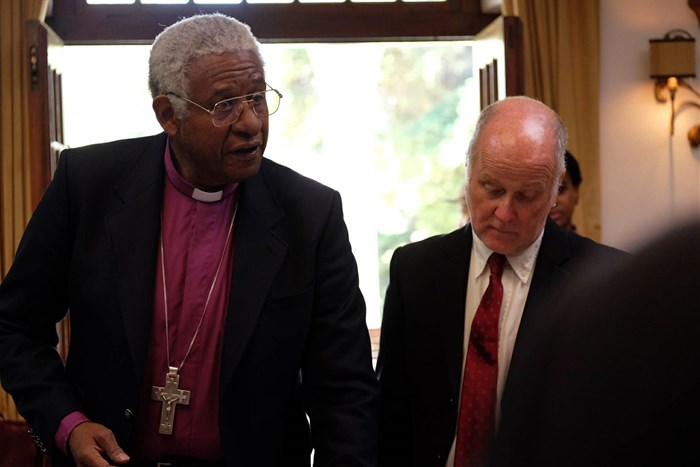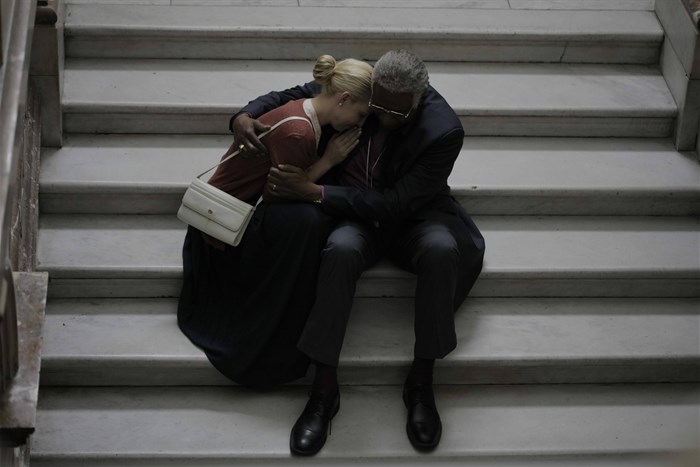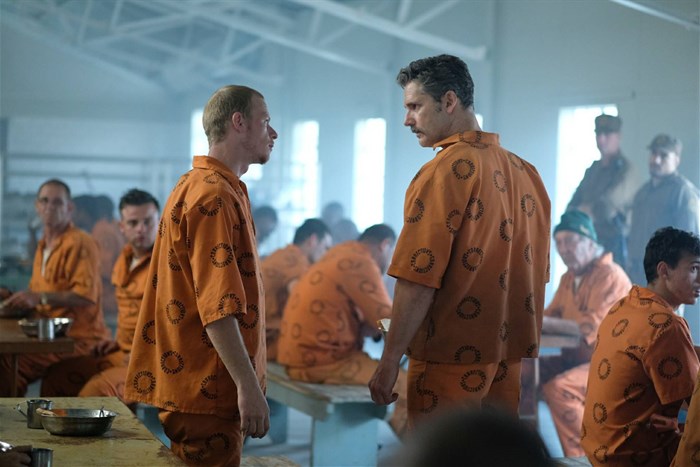
Top stories






LifestyleWhen to stop Googling and call the vet: Expert advice on pet allergies from dotsure.co.za
dotsure.co.za 16 Feb 2026
More news


Marketing & Media
Ads are coming to AI. Does that really have to be such a bad thing?













The drama follows Archbishop Desmond Tutu’s (Forest Whitaker) work as president of the Truth and Reconciliation Commission in post-apartheid South Africa, and his struggle with a brutal murderer Piet Blomfeld (Eric Bana) over concession and redemption.

Described as a story of redemption and forgiveness, this film was shot completely in Cape Town, South Africa, where principle photography commenced in November 2016. Mostly filmed in and around the city, the film crew on many occasions had to endure long days and nights in one of the world’s most dangerous prison facilities, Pollsmoor Maximum Security Prison, where Nelson Mandela himself spent his years between 1982 and 1988.
Produced by Craig Baumgarten and South African producing partner Zaheer Goodman-Bhyat from Light and Dark Films. It also boasts strong performances by South African actors Jeff Gum, Morné Visser, and Thandi Makhubele.
According to the producers, the story is poignant and timely. “It reminds us of Archbishop Tutu’s gift of forgiveness and the healing it brings, and we are honoured to tell this story.”
Based on Michael Ashton’s play The Archbishop and the Antichrist (the playwright collaborated with Joffé on the screenplay), Joffé explains the reasoning behind the film: “This is a subject that’s both social and political but also rather personal, because let’s be honest, we’ve all done things in our lives that we need forgiveness for, that we haven’t come to terms with. We’re all prisoners of our history, whether it’s social, cultural or family.”

Two-time Academy Award nominee Joffé (The Mission) has gained a reputation for hard-hitting political stories and The Forgiven, like his 1984 cinematic breakthrough The Killing Fields, is cerebral and unflinchingly violent in its depiction of South Africa’s recent political history.
Academy Award-winner Whitaker delivers a finely nuanced performance, conveying Tutu's formidable inner strength, dignity, and compassion. Having previously portrayed a South African in the filmZulu (2013), he already had an informed understanding of South Africa’s history, which he utilises to add depth and power to his performance as the Archbishop.
Despite being one of Hollywood's most acclaimed actors, Whitaker confessed that playing Tutu proved to be one of the biggest challenges of his career. “I knew his laugh, his sense of humour, how he felt, his passion, and his faith. But he has a graceful way in which he looks at the world. Trying to pull those things together, to capture the spirit of the man, was challenging.”
Bana, too, delivers a powerhouse performance, using his physicality and charisma to make a loathsome character suitably scary, but also very human.

“This is probably the most intimidating character I’ve ever played,” admits the Australian actor. “The key to the character, for me, was just throwing myself into South African history. There was so much that I needed to know before I could stand any chance of understanding where Blomfeld’s warped sense of entitlement came from. It was just one of those roles where you have to really jump into the deep end, and trying to learn and understand a lot of the history was the first step.”
The Archbishop himself has given the project his blessing, saying: “This timely, compelling and intelligent film, movingly, and above all humanely, captures what it felt like to be working with those selfless members of the TRC who strove, often against the odds, to help bring both truth and reconciliation to the ordinary people of South Africa. The film is a tribute to the remarkable and healing power of forgiveness and the outstanding compassion and courage of those who offered love and forgiveness as an antidote to hate and inhumanity. This is not only a film about a certain time and place, but it is also a pean of hope to humanity at large.”
Michael Ashton’s screenplay for The Forgiven began as a stage play, which he wrote while completing a prison sentence. Ashton used his time in prison to create this historical fiction about a brutal war criminal seeking amnesty from Archbishop Desmond Tutu.
“While I was in prison, I wasn’t going to waste my time,” says Ashton. “I took a master’s degree in research methodology. My thesis was on the Truth and Reconciliation Commission in South Africa. For free, once a week, I attended a playwriting course. The people who ran the course, Synergy, they wanted you to write something for the end of the course.”
“When I started to think about what I was going to write about, I was racked by guilt, tormented by guilt. I started to wonder about forgiveness and redemption. How do you deal with these issues? And when you are sitting in a prison cell by yourself, you only got yourself. So, when I started to write, I wanted to write something meaningful. And I realised that Desmond Tutu was overlooked. You have films about Nelson Mandela but Desmond Tutu, the man who worked hard and was in the front line for many years, was overlooked. Hence my story.”
“It is important to embrace the principle of the healing power of art within prison. Accept any offer of education and learn from those who are prepared to pass on their expertise and experience, and this is particularly true when it comes to mastering the art of playwriting and screenwriting. I decided to mix my experience of being a prisoner with my desire for my own salvation and my love for human rights issues.”
“I hope that audiences will be able to go away and be able to forgive themselves,” says Ashton. “When it comes to getting angry and frustrated in this technological, technocratic society you live in, that they’ll forgive people because none of us are perfect. My own personal experience has taken me from the back streets of the Scottish city of Dundee (known for jam, jute, and journalism) to the bright glittering lights of Hollywood. In between, I have been a soldier, a taxi driver, ice-cream salesman, leather worker, construction manager, and barrister. I hope my story inspires those still enduring the hell of incarceration and lets them see that there is always hope and a light at the end of what often may seem a very dark tunnel.”
Read more about the latest film releases on www.writingstudio.co.za
